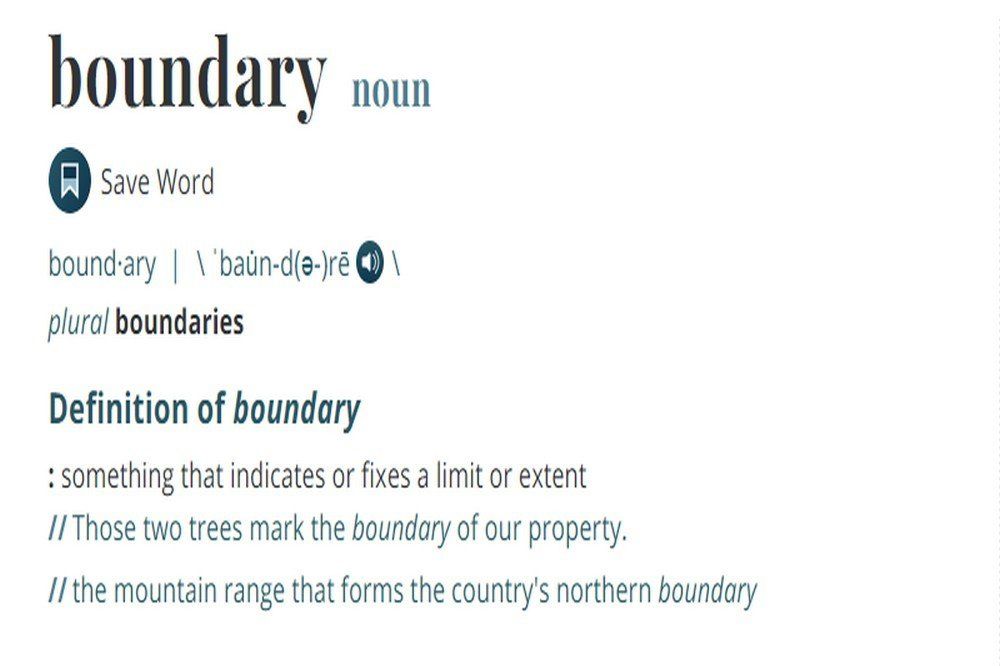Importance of Creating Boundaries

What are personal boundaries and why are they so important?
Personal boundaries are your core, personal values. Your identity and your ability to love and trust yourself. Personal boundaries can be anything, but they usually help define who you are. Boundaries are best identified as knowing when to say "No", without feeling guilty about it.
Personal boundaries are unique to each person, but they are important to identify for YOURSELF. Setting boundaries for yourself, will help keep you aligned with your own true values. Help establish and maintain your own concept of self. Identify your own self needs. When you have a strong sense of self, and self worth, it's easy to say no. Having healthy boundaries allow you to go about your life, confident in your decisions because you're rooted and know what you want and don't want in your life. Healthy boundaries and knowing how to enforce them allow you take care of your self. To know and enforce what you're willing to do and not willing to do. What you will accept and not accept.
By not having these boundaries defined for yourself, you're unknowingly letting other people define you. Allowing others to control you, undermining your self trust, self confidence and adding to your insecurities.
If you already have a good set of boundaries already in place, wonderful!
If you're not sure, here's a list of situations that may warrant the need to seek professional guidance on defining and upholding your own boundaries:
- You give more than you receive in relationships
- You don't speak up when you feel unfairly treated
- You say yes to things you don't want to do
- You're unable to say no to something you don't want to do
- You constantly over promise and under deliver
- You feel guilty all the time about things you did or didn't do
- You feel overwhelming guilt when you say no
- You jump into relationships and take on the identity of your partner
- You're unable to define who you are
- You get overinvolved with other peoples problems
- You've been called co-dependent
- You don't usually ask for help
- You struggle with constantly disappointment
- You compromise your own values for others
- You second guess your own opinion
- You think you can change someone to make them happy
- You are afraid of disagreement
- You ignore your own feelings or needs
- You tolerate abuse or disrespect
- You inappropriately share personal information
- You distance yourself to avoid rejection
Examples of healthy boundaries are:
- Being comfortable with saying "No"
- Being comfortable with disagreeing
- Acknowledging your own feelings
- Knowing you're not responsible for someone else's feelings
- Reinforcing your core values
- Not wavering from your believes
- Being confident in your own choices
- Asking for what you want and need from others
- Being able to express your emotions
- Feeling safe and respected in your relationships
Some of us are better at enforcing these boundaries than others. It's also ok for your own personal boundaries to differ over time, and vary depending on the situation. However, it's still important to recognize what your boundaries are, how to effectively communicate them to others, listen to your intuition, learn to say 'No', and respect others boundaries as well.











